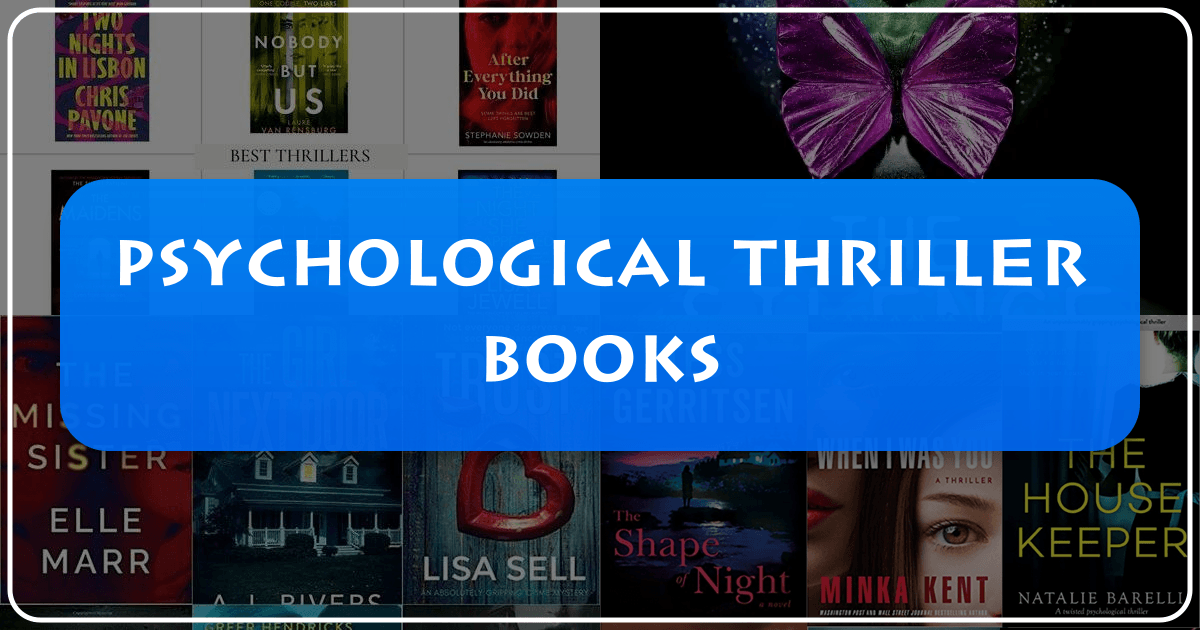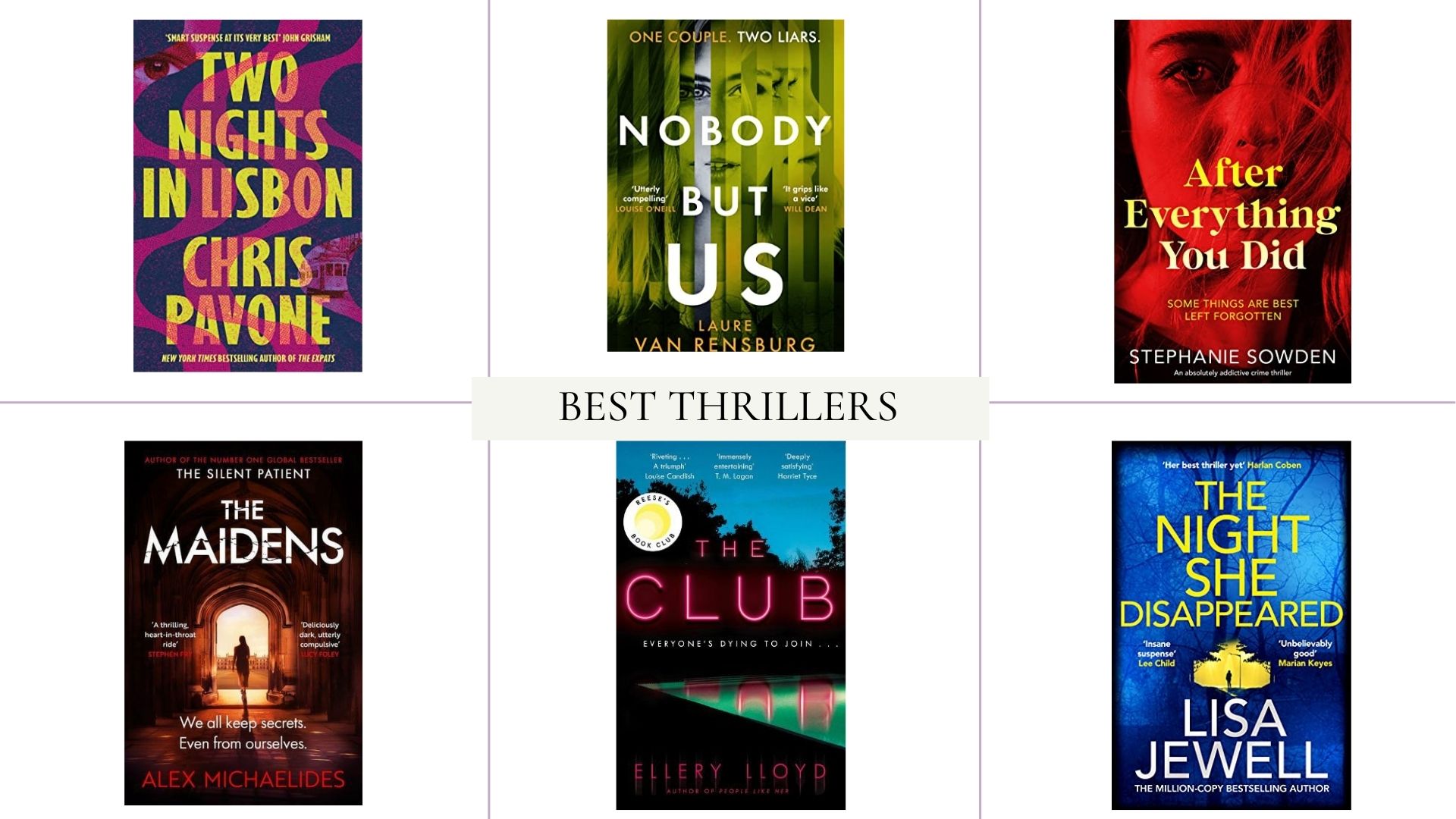Psychological Thriller Books: A Deep Dive into Suspense and the Human Psyche

Who doesn’t love a good mystery? The thrill of unraveling an impossible problem, playing detective, searching for clues—it’s inherently captivating. But psychological thriller books offer something unique: the intrigue of a mystery combined with a deliberate manipulation of the reader’s mind. These narratives challenge our perceptions of reality, forcing us to question the reliability of narrators and the very nature of truth. This exploration delves into the compelling world of psychological thriller books, examining their captivating plots, memorable characters, and lasting cultural impact. We’ll explore a range of titles, from bestselling sensations to critically acclaimed classics, highlighting the elements that make these books so addictive and unforgettable.
Bestselling Psychological Thriller Books: Masters of Manipulation

Several psychological thriller books have ascended to bestseller status, capturing the imaginations of millions with their intricate plots and unsettling characters. These novels often feature unreliable narrators, blurring the lines between reality and perception, leaving readers questioning everything they thought they knew. The following examples showcase the mastery of suspense and psychological manipulation that defines the genre’s most successful works.
Gone Girl by Gillian Flynn
Gillian Flynn’s Gone Girl ignited a cultural phenomenon, exploring the complexities of a marriage unraveling. Amy Dunne’s disappearance on her fifth wedding anniversary throws her seemingly perfect husband, Nick, into the spotlight as the prime suspect. Flynn masterfully uses unreliable narration, presenting both Nick and Amy’s perspectives, revealing their manipulative natures and the dark secrets hidden beneath their seemingly idyllic facade. The novel’s shocking twists and turns leave a lasting impact, making it a memorable and often discussed thriller. The novel’s exploration of deception and the fractured nature of relationships continues to resonate with readers, solidifying its place among the genre’s best.
The Girl on the Train by Paula Hawkins

Paula Hawkins’ The Girl on the Train uses the unreliable narration of Rachel Watson, an alcoholic woman whose daily commute becomes a window into the lives of others. Her fascination with a seemingly perfect couple takes a dark turn when she witnesses a shocking event, blurring the lines between reality and hallucination due to her drinking. The novel’s shifting perspectives and ambiguous clues keep readers guessing until the very end, highlighting the dangers of assumptions and the fragility of memory. The Girl on the Train exemplifies the power of unreliable narration in creating suspense and exploring themes of obsession, trauma, and identity.
The Silent Patient by Alex Michaelides
Alex Michaelides’ The Silent Patient presents the enigmatic Alicia Berenson, a famous painter who shoots her husband five times and then falls silent. Criminal psychotherapist Theo Faber becomes obsessed with unraveling her silence, embarking on a journey that challenges his own sanity and reveals the shocking truth behind the crime. The novel skillfully blends psychological suspense with elements of a classic whodunnit, keeping readers guessing until the final, shocking revelation. While opinions on the twist are divided, its effectiveness in generating discussion and debate further illustrates the genre’s capacity to spark intense engagement.
The Guest List by Lucy Foley

Lucy Foley’s The Guest List sets a thrilling mystery against the backdrop of a lavish wedding on a remote island. As the celebration unfolds, past conflicts and hidden resentments bubble to the surface, culminating in a murder. Foley expertly crafts a complex ensemble cast of suspects, each with their own motivations and secrets, keeping readers perpetually guessing as the investigation progresses. The novel’s immersive atmosphere and carefully constructed plot make it a gripping read from start to finish, showcasing the potential of the genre to seamlessly blend mystery and character-driven drama.
New Releases and Emerging Trends in Psychological Thriller Books
The genre continues to evolve, with new authors and fresh approaches constantly emerging. Recent publications demonstrate the enduring appeal of psychological thrillers while exploring new thematic territories and narrative styles.
Listen for the Lie by Amy Tintera
Amy Tintera’s Listen for the Lie features Lucy, a woman grappling with amnesia surrounding the night she allegedly killed her best friend five years prior. The arrival of a true-crime podcaster investigating the case forces Lucy to confront her past and the unreliable nature of memory. Tintera masterfully blends humor with suspense, creating a captivating narrative that keeps readers guessing. This exemplifies the genre’s ability to adapt to contemporary formats and engage with current trends in storytelling.
First Lie Wins by Ashley Elston
Ashley Elston’s First Lie Wins centers on Evie, a con artist who takes on new identities for each assignment. Her latest target, Ryan, unexpectedly connects with her on a deeper level. This cat-and-mouse game forces her to balance her professional deception with unexpected emotional entanglements, creating a fast-paced and thrilling read. This contemporary take showcases the evolving nature of the genre’s characters and their motivations.
Darling Girls by Sally Hepworth
Sally Hepworth’s Darling Girls explores the complex dynamics of three foster sisters whose seemingly idyllic childhood harbors dark secrets. When a body is discovered on their family farm, the sisters are thrust into a web of suspicion and forced to confront their past. This novel delves into family dynamics and the lingering effects of childhood trauma, enriching the psychological suspense with emotionally resonant themes. This highlights the genre’s increased focus on character development and exploration of complex personal histories.
The Last Word by Taylor Adams
Taylor Adams’ The Last Word presents Emma, a house sitter who finds herself embroiled in an online dispute with a horror novelist. Strange events begin to occur, blurring the lines between online harassment and real-world danger. This narrative masterfully combines online interactions and real-life suspense, creating a unique and engaging thriller. This demonstrates the genre’s ongoing evolution and its ability to engage with current social and technological trends.
Classic Psychological Thriller Books: Enduring Masterpieces
The foundation of the psychological thriller genre rests on a body of classic works that have defined and shaped its conventions. These novels, though often older, maintain their enduring appeal through their powerful storytelling, compelling characters, and timeless exploration of the human psyche.
And Then There Were None by Agatha Christie
Agatha Christie’s And Then There Were None is a classic whodunit, set on a remote island where a group of strangers are mysteriously killed off one by one. Christie’s masterful plotting and suspenseful atmosphere have ensured its enduring popularity. This highlights the genre’s longevity and its capacity to create immersive, enduring narratives that stand the test of time.
Rebecca by Daphne du Maurier
Daphne du Maurier’s Rebecca centers around a young woman who marries a wealthy widower and finds herself haunted by the memory of his deceased first wife. The novel masterfully creates suspense and mystery, exploring themes of obsession, jealousy, and the complexities of female identity. This novel solidified the genre’s capacity for gothic suspense and its exploration of complex psychological states.
Strangers on a Train by Patricia Highsmith
Patricia Highsmith’s Strangers on a Train presents a chilling tale of two strangers who devise a plan to swap murders. The novel’s exploration of human depravity and the potential for violence within seemingly ordinary individuals remains disturbingly relevant, highlighting the genre’s enduring power to explore the darkest aspects of the human condition. This novel’s impact on film and subsequent thriller literature further demonstrates its influence on the genre’s development.
Misery by Stephen King
Stephen King’s Misery offers a terrifying tale of obsession as a reclusive fan holds her favorite author captive. King masterfully builds suspense and terror, playing on the reader’s anxieties about vulnerability and power imbalances. This demonstrates the genre’s versatility and its ability to encompass elements of horror and suspense to create truly unsettling narratives.
Exploring Subgenres and Thematic Variations Within Psychological Thriller Books
The genre is not monolithic; it encompasses various subgenres and thematic variations, each with its own unique approach to suspense and psychological exploration.
Dark Psychological Thriller Books: Delving into the Abyss
This subgenre focuses on intense psychological suspense, often exploring themes of violence, trauma, and the darkest aspects of human nature. These narratives can be profoundly unsettling, but their unflinching exploration of disturbing topics makes them compelling and unforgettable.
Top Psychological Thrillers From Repeat Authors: Mastering the Craft
Several authors have consistently delivered high-quality psychological thrillers, establishing themselves as masters of suspense. Their works demonstrate their understanding of the genre’s conventions, while also pushing its boundaries through stylistic innovation and thematic experimentation.
Psychological Thrillers You Might Have Missed: Hidden Gems
The genre boasts a wealth of lesser-known novels that deserve wider recognition. These hidden gems often offer fresh perspectives and innovative approaches to psychological suspense, providing rewarding reading experiences for those seeking something beyond the mainstream.
The Cultural Impact of Psychological Thriller Books: Beyond the Page
Psychological thriller books have transcended their genre classification, significantly impacting popular culture. Their popularity has led to numerous film and television adaptations, awards, and the creation of dedicated online communities where readers discuss, review, and engage with their favorite works. This widespread cultural impact underscores the genre’s enduring appeal and its capacity to engage audiences on a profound level.
Literary Influence: Shaping the Genre’s Conventions
The genre’s enduring popularity has inspired numerous authors to experiment with its conventions, leading to a diverse range of subgenres and styles. This diverse range ensures the genre remains dynamic, ever-evolving, and consistently captivating.
Adaptations: From Page to Screen
Many psychological thriller books have been successfully adapted into film and television, further extending their reach and solidifying their cultural impact. These adaptations often reinterpret the source material, introducing new perspectives and engaging a wider audience.
Awards and Recognition: Celebrating Excellence
Numerous awards and accolades have recognized exceptional psychological thriller books, highlighting the genre’s literary merit. These awards underscore the genre’s creative potential and its capacity for profound literary achievement.
Communities: Fostering Shared Engagement
Online communities devoted to psychological thrillers have emerged, fostering discussion, reviews, and shared engagement among readers. These platforms promote the exchange of perspectives, enriching the reading experience and sustaining the genre’s enduring popularity.
This exploration into the world of psychological thriller books reveals a genre that is both captivating and intellectually stimulating. Its enduring appeal stems from its exploration of human nature, its capacity for suspense, and its ability to challenge our perceptions of reality. The diverse range of titles, from classic masterpieces to contemporary bestsellers, offers something for every reader, ensuring that the genre’s popularity will likely endure for years to come.